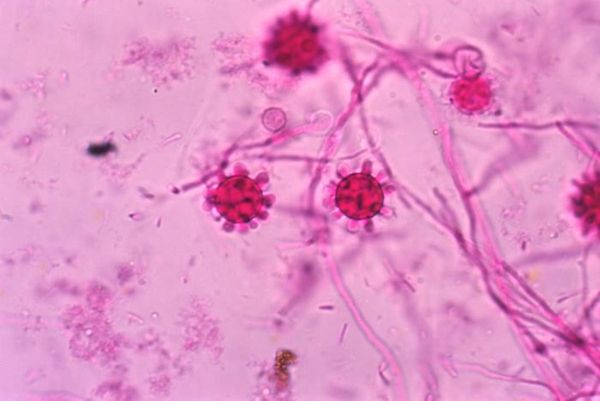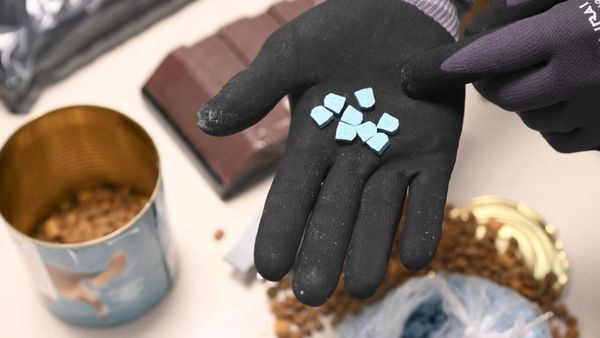
In the more than seven decades since Phil Fontaine entered a residential school for Indigenous children in Manitoba, he has spoken of the decade he spent in the system and the abuse he suffered several times.
This week, the former national chief of the Assembly of First Nations will recount it again to Pope Francis. Mr Fontaine and 31 other Indigenous delegates from First Nations, Métis and Inuit communities are visiting the Vatican to press for an apology for the church’s role in the government-funded schools.
"It’s another step - an important step - in terms of reconciliation between Canadians and our people, and the Church and our people," Mr Fontaine, 77, told The Washington Post. "We can’t just dismiss this as nonimportant to us. It’s of critical importance."
Francis, who has apologised for other historical wrongs, has expressed "sorrow" for the schools but stopped short of an apology. Calls for a formal apology have grown in the last year as several Indigenous groups said ground-penetrating radar had found evidence of hundreds of unmarked graves at or near former residential schools.
Grief, shock and anger rippled across Canada, prompting what many hoped would be a long-overdue reckoning over its treatment of Indigenous people.
"Canadians now have been exposed to these stories in a way that complicated their own understanding and knowledge of their country," Fontaine said.
Quebec Bishop Raymond Poisson, president of the Canadian Conference of Catholic Bishops, said in a statement that he expects this week’s meetings "to meaningfully address both the ongoing trauma and legacy of suffering faced by Indigenous peoples, as well as the role of the Catholic Church in the residential school system."
At least 150,000 Indigenous children were separated from their families, sometimes by force, to attend the schools, which operated for more than a century to assimilate Indigenous children. The last school closed in the 1990s.
Children at the schools were often punished for speaking their native languages and practising their traditions. Many suffered physical, psychological and sexual abuse. In a landmark 2015 report, Canada’s Truth and Reconciliation Commission said the schools institutionalised child neglect and carried out "cultural genocide."
The commission identified about 3,200 children who died at the schools. The number has grown since the report was published. Children died of disease, malnourishment, in accidents, by suicide or while trying to escape. Some were buried in unmarked graves.
Residential school experiences have left many survivors with deep scars, triggering multigenerational trauma. But much of this history was unknown to many non-Indigenous people in Canada or ignored.
Enter Mr Fontaine. In 1990, the then-head of the Assembly of Manitoba Chiefs told a Canadian Broadcasting Corp. program that he and many of his peers had been abused, including sexually, as residential school students.
"The extent and the intensity of the abuse" necessitated an inquiry, he said in the interview. "We were dealing with an institution and a body that represented the highest moral authority in our community, and we just didn’t question what went on."
Mr Fontaine had previously spoken publicly about his residential school experience, but the CBC interview hit a nerve and inspired other survivors to break their silence. He was among the first to speak about the schools, and a public figure.
"I felt compelled to speak up because I knew it was such a huge problem with so many people and in so many of our communities," he told The Post. "I believed it was wrong to turn a blind eye. You have to make the story known to Canadians. You have to document the history."
Mr Fontaine said his childhood growing up on the Sagkeeng First Nation in Manitoba was filled with "wonderful" memories. But it "all came down to an end" when he began residential school - like his siblings, parents and grandparents before him.
He was six years old when he entered the Fort Alexander Indian Residential School, run for more than 60 years by the Missionary Oblates of Mary Immaculate until 1970. His dad died several months after he started at the school, making an already difficult experience worse.
"It was very traumatic," Mr Fontaine said. "I was just a little guy."
The Truth and Reconciliation Commission reported that the Fort Alexander school had "problems with runaways" from its inception. Several boys drowned in 1928 while attempting to escape by boat, the commission reported, but there was no record of school administrators having reported their deaths to government authorities.
Mr Fontaine later attended the Assiniboia Indian Residential School, run by the Oblate Fathers of Mary Immaculate. The commission said the school, which opened in 1958, was converted to a hostel in 1967 and closed in 1973, had problems with overcrowding.
Mr Fontaine spent years pressing the government for redress. He told a parliamentary committee in 2005 that tens of thousands of students had died without justice.
"The rest of us are still waiting," he said. "Waiting for the government of Canada to come to grips with the worst human rights violation in this country’s history. . . .
"I resent the need for us to tell our heart-wrenching stories over and over again in order to convince you of their truth."
In 2006, the federal government and several church groups settled a class-action lawsuit with survivors for more than $1.5 billion. Mr Fontaine was a lead negotiator. In 2008, Prime Minister Stephen Harper apologised for the government’s role in the system.
The Truth and Reconciliation Commission report came out eight years later. Its 94 recommendations included a call for a formal apology by the pope on Canadian soil. Most of the schools were run by Catholic dioceses and orders.
Survivors told the commission that the lack of a formal apology was proof that the church had "not come to terms with its own wrongdoing in residential schools," and "permitted many Catholic nuns and priests to maintain that the allegations against their colleagues are false."
The Anglican, United and Presbyterian churches of Canada, which ran some schools, apologised for their roles in the 1990s. But while some Catholic entities and local church leaders have apologised, the pope has not - even after Prime Minister Justin Trudeau, who is Catholic, appealed to him in person in 2017.
Canada’s Catholic bishops in September said they wished to "apologise unequivocally" for the role of Catholic groups in the residential school system, "which led to the suppression of Indigenous languages, culture and spirituality."
The Canadian Conference of Catholic Bishops had said in 2018 that Francis "felt he could not personally respond" to calls for an apology. The bishops argued the Church had shown remorse, citing a 2009 meeting between Indigenous leaders and Pope Benedict XVI in which he expressed "sorrow" for the schools and offered "sympathy."
Mr Fontaine attended that private audience. After the meeting, the CBC reported that Mr Fontaine said he hoped Benedict’s statement would "close the book" on the issue of apologies - comments the bishops’ conference once cited in defence of Francis.
Mr Fontaine told The Post that this papal visit is taking place in a different context. In 2009, the Truth and Reconciliation Commission report hadn’t been issued and there hadn’t been the findings of evidence of unmarked graves.
After that meeting, Mr Fontaine said, he "didn’t want people to feel dejected."
"I didn’t want anyone to be despondent, to lose faith," he said. "I wanted to articulate what I had experienced in the most positive way possible, knowing fully well that we had not received an apology."
The Vatican said last year that Francis "has indicated his willingness" to visit Canada in response to an invitation from the bishops, and that his trip would in part take place "in the context of the long-standing pastoral process of reconciliation with Indigenous peoples."
A date for that visit has not been determined. Indigenous leaders hope an apology is delivered on Canadian soil and that this week’s meetings with Francis will lay the foundation for that trip.
Gerald Antoine, the Assembly of First Nations regional chief for the Northwest Territories and a residential school survivor, said there’s "optimism" ahead of this week’s meetings.
"Our hope is that this visit and a potential visit from the pope coming to our home here . . . will provide some measure of dignity and also respect for those survivors and the intergenerational survivors of the residential schools," he said.
The Indigenous delegates, who are to be accompanied by several Catholic bishops from Canada, have more on their agenda than an apology.
They also want the Church to release records that could shed light on the identities of the children who died at the schools, and to meet its outstanding obligations under the class-action settlement from 2006.
Some are calling on the Vatican to revoke papal bulls dating back to the 15th century that enshrined what’s known as the doctrine of discovery. They proclaimed that Christian nations could claim and conquer land inhabited by non-Christians and were used to justify colonisation in the Americas.
"Apologies are critical," Mr Fontaine said. "If they result in concrete action, they become even more meaningful. . . . The Catholic Church also has to express what it is prepared to do to fix these problems, to fix the old wrongs, the mistakes of the past."
Washington Post







